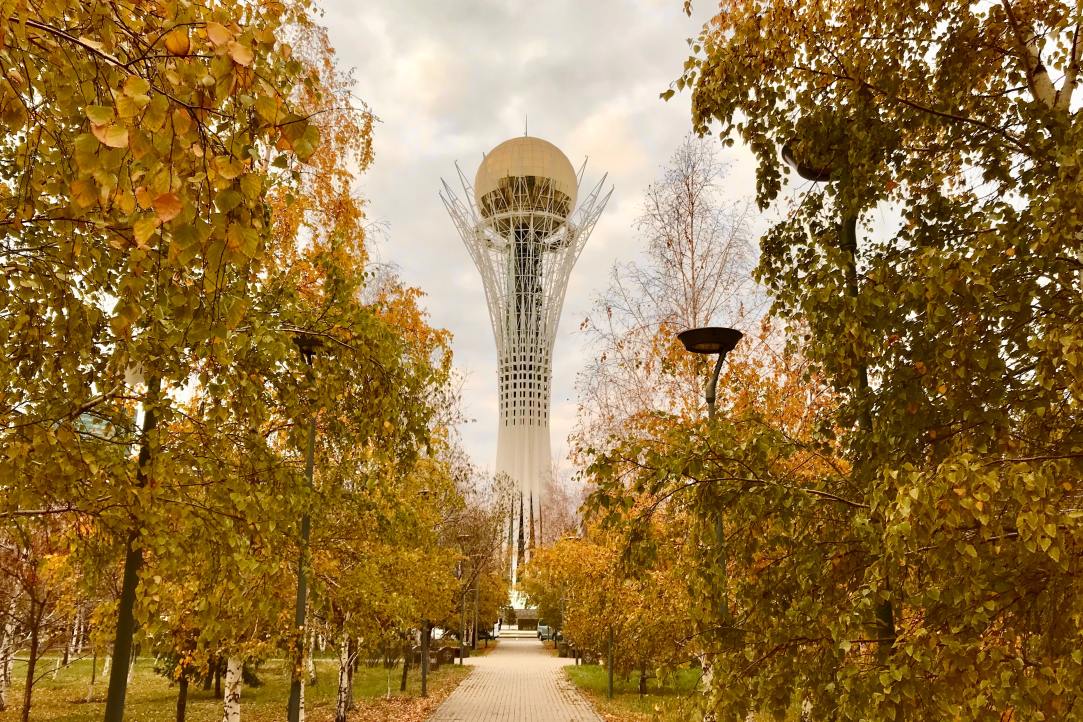Hidden Champions: Who They Are and How to Study Them

The HSE Graduate School of Business Institute of Innovation Management (IIM) studies high-growth companies and offers education and advice to their founders and managers. As part of the project, it presented a report on Kazakhstan’s ‘hidden champions’—companies that grow rapidly, but with a low level of publicity. The HSE News Service talked to the report’s authors, Christian Kahl from Beijing Jiaotong University and Aigerim Raimzhanova from Narxoz University in Almaty, as well as Alexander Stepanov, coordinator of the project at IIM.
Alexander Stepanov
Head of the Sector of Regional Innovative Development, Graduate School of Business Institute of Innovation Management
The key goal of our project is to study the specifics of high-growth firms (HGFs) in Russia in comparison to those in other countries. Among Russian HGFs, I can mention ABBYY (an IT company), BASK (a manufacturer of clothes and equipment for tourism and mountaineering), Kaspersky Lab (antivirus software), BIOCAD (a developer and manufacturer of medicines and vaccines). Less-known, but notable Russian companies include Argus-Spectr from St Petersburg—a global leader in wireless safety systems such as fire alarms. Monocrystal from Stavropol is world’s biggest manufacturer of synthetic sapphires. SKTB Katalizator is a major Russian developer and manufacturer of catalysers and sorbents for oil processing and industrial ecology.
Notable international companies are (or were) Netflix and Amazon in the US, ByteDance (owner of TikTok) and Huawei in China, and Octopus Energy in the UK, which works in sustainable and renewable energy.
A strategic goal of our project is to establish the HSE Graduate School of Business as a leading centre for the study of high-growth companies, as well as education and advice for their founders and managers
Our project offers educational programmes for the staff of HGFs, as well as workshops and conferences related to HGFs. We offer advice to the founders and managers of HGFs on business development, as well as prepare recommendations for federal and regional governments on supporting HGFs.
As part of our workshop series, we have welcomed Dr Alex Coad from Waseda Business School, Japan, who talked on ‘Capacity Constraints as a Trigger for High-Growth: Evidence and Policy Implications’; Dr Allard van Riel from Hasselt University, Belgium, on ‘Individual Ambidexterity as a Condition for Innovation Driven Growth in SMEs’; and Dr Ekaterina Albats from LUT University, Finland on ‘Open Innovation in SMEs and Fast-Growing Companies: A process View Towards Business Model Innovation’.
We are grateful to all the colleagues who supported the first stage of the project, which will be completed in autumn 2022. If the HSE Graduate School of Business Academic Committee deems its results to be successful, it may be prolonged up to 2024.
Christian Kahl from Beijing Jiaotong University and Aigerim Raimzhanova from Narxoz University in Almaty studied Kazakhstan’s ‘hidden champions’. Hidden champions—a term coined by German researcher Hermann Simon—are leaders in their markets that often grow rapidly, but are distinguished by a low level of publicity.
Christian Kahl
Associate Professor at Beijing Jiaotong University
Dr Christian Kahl got his Master’s and PhD from Friedrich–Schiller University in Jena, Germany. Since 2007, he has lived and worked in various Asian countries: at Les Roches in Shanghai, China, Taylor’s University Subang Jaya, Malaysia, Almaty Management University Almaty, and currently at Beijing Jiaotong University, China. At BJTU, he holds an Associate Professor position at the School of Economics and Management. His focus in research and teaching is on Cross-cultural Management and Human Resource Management, where he is researching Higher Education Development.
‘We used three different research networks: the previous Hidden Champions contacts, which were provided by the Central and East European Management Development Association, the industry network of our university in Kazakhstan and the Kazakhstan government database. The research was structured in two parts. The first one was to research all the databases to deeply understand the idea of hidden champions and identify candidates, and the second part was the interview process and the writing of the research outcome.
The future leaders of such businesses must be innovative, empowered, big thinking, self-confident, experts in their relevant fields, and capable of accepting failure and setbacks
Today, I am working on a global employability model for university graduates. This model (including training and development modules) will help graduates to smoothly enter the global workforce and become successful leaders of tomorrow’.
Aigerim Raimzhanova
Director of the International Development and Partnerships Office at Narxoz University
Dr Aigerim Raimzhanova earned her PhD from a joint programme between the Institute for Cultural Diplomacy (Berlin, Germany) and the University of Bucharest. Aigerim has extensive administrative experience that includes the coordination of research centres, libraries, PhD programmes and international development. Dr Raimzhanova is currently the director of the International Development and Partnerships Office at Narxoz University. Dr Raimzhanova's teaching experience includes bachelor’s, master’s and doctoral courses in Kazakhstan and abroad.
‘We have utilized JSTOR, Science Direct and other world databases for initial research, while the primary data came from the companies themselves. Our research methodology was interviews with companies: phone calls and face-to-face meetings.
The framework for 'hidden champions' from Kazakhstan and Russian enterprises in many ways is similar
The common economic and political context creates similar opportunities and challenges for existing and potential hidden champions. At the same time, each market has its own nuances, including socio-cultural factors. In Kazakhstan alone, market context varies across different cities.
Challenges to becoming ‘hidden champions’ include economic difficulties, missing out on connections with the government and state funding, monopolies, and a lack of transparency and open business culture in some industries.’
Степанов Александр Константинович
сектор регионального инновационного развития: Заведующий сектором